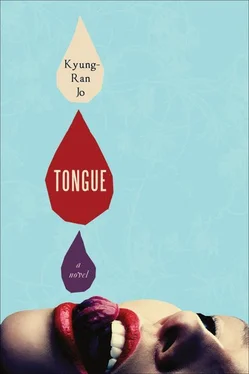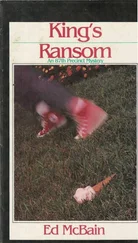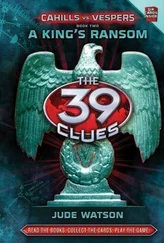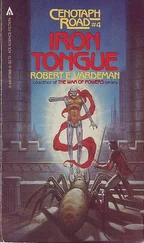Mun-ju now enjoys food, but she still has a hard time with sex even though the fundamental sexual instinct is oral. I find it interesting when sexual, but not oral, repression exists. Is it because we become aware that we have a tongue before understanding we have a penis, a mouth before a vulva? The organs located in the lower regions, the penis and the anus, feel pleasure by contracting and retaining, which relates to control and obsession, but the mouth is associated with immediate pleasure: sucking, licking, biting. You can try to control your mouth through eating. And although everything involved with eating—swallowing, chewing, digesting, and going to the bathroom—can be orgasmic, achieving an orgasm requires a will. So the urge to maintain control over yourself compels you to control your food intake, then represses your sexual urges. We neither know how to cure it nor do we have the courage to do so. Liking or disliking something is a conceptual problem, not a real one. It’s the same even for dogs.
“Grandmother once had a dream about onions,” I remember.
“What was it about?”
“She found a trunk, and she opened it to find shiny gold onions. It wasn’t money or gold, but Grandmother thought it was a good omen. Onions shimmering like gold—a whole trunk’s worth at that! Grandmother thought she saw something that doesn’t exist in this world, like the ancient Egyptians used to.”
“Egyptians?”
“If you look at an onion sliced in half, you see concentric circles. Egyptians thought this mirrored the concentric circles of the heavens and believed that onions and garlic had powerful healing properties. So they packed onions inside mummies, and when a loved one died, they placed them in their eye sockets.”
“That’s kind of disgusting.”
“Well, I know you don’t like onions, but try to look beyond that.”
“Was your grandmother a happy person?”
“I think so. At least before her son and daughter-in-law died in the accident.”
“I think I would be different if I had a grandmother.”
“What do you mean?”
“I don’t know, maybe I wouldn’t have grown up hating the kitchen.” Mun-ju smiles.
That might be true. Mun-ju’s mother died before Mun-ju was old enough to learn how to cook by her side. You don’t enjoy cooking if you think of it as a duty. Mun-ju couldn’t understand that the kitchen is a warm, cozy place—Grandmother used to say that being in the kitchen is like sitting close to someone in front of the fireplace on a winter night. Even if I’m preparing food for a death anniversary, I’m not making the dishes for a dead person: It’s as if Grandmother is scheduled to come in five minutes, holding dried lavender in one hand and a basket of steamed potatoes in the other. Filled with excitement and expectation, I season fernbrake and boil chicken and fry beef and onion pancakes. The first time I cooked a full-course meal was on the date of Grandmother’s death, the year after she died.
“If I picked up that trunk, I wonder what would have been inside?” wonders Mun-ju, still thinking about onions.
“I don’t know. What would you want to be inside?”
“Hm, I’m not sure.”
“Something you like, I’ll bet.”
“So something like water?”
What am I supposed to say to that? You can’t go back after a potato has cooked through or an egg has been broken. Just forgive your father, Mun-ju . Otherwise Mun-ju might continue torturing herself with these dreams. Dreams where nobody can help her.
“What would be in it if it were you?” Mun-ju asks.
“In the trunk?”
“Yeah.”
“I don’t know…”
I don’t think it’s appropriate to say tomatoes, but I can’t think of anything else. Once when we were young, Uncle said, Want to see something interesting? and pulled down his pajama bottoms. There’s a flesh-colored pinky dangling between Uncle’s legs, I thought, and immediately fainted. I also fainted after I first slept with Seok-ju, as if I were a woman living in the nineteenth century who’d bitten into a tomato for the first time. The tomato was an emblem of fear and terror for me: With its thick, sticky innards and densely embedded black seeds, it was as if I were touching something forbidden. My hidden sexual orality slowly drifted downward, like rain trickling down a tree branch. Seok-ju licked it and smelled it and touched it and wet it like it was a small fruit that would burst and lose its juices if he didn’t take care of it, and he waited for it to ripen and open up like a fig. That’s how I was able to get over the tomato, although it took almost a year.
I remember making a tomato dressing to go with a seafood salad at one of my cooking classes. I told my students that it’s best to find a just-picked, fresh, juicy tomato, although it’s hard to find one in the city. One student joked, Isn’t that what men want in a woman? Now my face turns red for no reason, like it did then.
“Who said that?” asks Mun-ju.
“I don’t remember.”
“Se-yeon?”
I don’t say anything.
“God, that’s so her.”
“Yeah, Se-yeon is red and pretty like a tomato.”
“You’re ridiculous. Just watch, you’re going to dream about a tomato tonight.” Mun-ju throws a mushroom at me.
“Can you look after Paulie for three days?”
“Are you going somewhere?”
“Yeah, Singapore.”
“Oh, it’s already April.”
“I don’t think I can put him in a kennel this time. He’s really on edge.”
“Ask Seok-ju. Then Paulie will get better quickly, too.”
“You know she doesn’t like him.”
“It’s three days! She can’t watch him for three days, the dog of the man she can’t live without?”
“You’ll do it, right?”
Mun-ju is quiet.
The most potent of canine abilities is detecting and isolating a preferred scent from a whole tangle of smells. In the beginning of spring, Paulie stopped smelling like Seok-ju. Even when Paulie’s next to me, his ears are pressed back against his head and his tail lists limply to the side. It’s the position he assumes when he’s about to defend himself. It must be hard for Paulie that the person he needs is no longer around. It’s gotten harder and harder to leave Paulie at home by himself. And now I’ll be gone for three whole days. After Seok-ju, I cherish Uncle and Mun-ju the most, and so does Paulie.
“It’s hard. It feels like it’s getting harder and harder,” sighs Mun-ju.
“What is?”
“Just… everything. Life.”
I’m sure it’s not everything. There were moments when it wasn’t hard. I had many moments when I was happy.
“It’s okay, Mun-ju.”
“What is?”
“Just… everything.”
“That’s lame.”
I want to tell her that onions aren’t always bad. That it’s better to dream about onions than not to dream at all. Because dreaming must be proof that you’re thinking nonstop about the thing you desire. But why does desire come hand in hand with repression?
At one side of the table I put a salad of lettuce, three kinds of herbs, thinly sliced onions and cucumber, and lightly fried tofu with an Asian-inspired dressing. In April, and when you feel tired and lethargic, salad is the perfect choice. Not too stimulating, yet it will put a bounce in your step.
Mun-ju falls asleep. I close the front door and windows, which I’d left open a crack, and turn off the lights. There might be a sign that Grandmother came for a visit. I take a blanket and cover Mun-ju with it. I gently take Mun-ju’s hand, poking out from under the blanket, for a little bit. When you’re falling asleep, your senses slowly drift to sleep, too. The first one to go is taste, then sight, then smell, then your sense of hearing gradually falls asleep, too. Touch is the last sense to be lulled to sleep. Always alert until the very end, to warn us of any impending danger. In sleep, Mun-ju’s cheeks glow like rubies in the dark. Everyone shines like that, sensually, as they fall asleep. The sex you have before sleeping is the most profound and intimate. But when you’re finally asleep, all senses become isolated. What would be in my trunk other than onions or tomatoes or water?
Читать дальше












